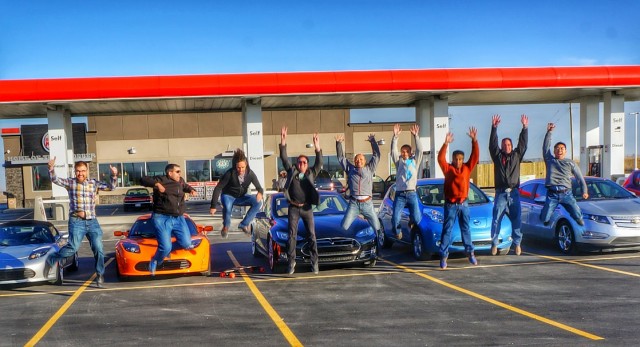
Here are three interesting items that are linked to sustainability and surprisingly involve the province of Alberta. As noted on Twitter by @TheGentYYC some extraordinary initiatives are moving that province in a greener direction. First off, that Canadian oil stalwart, Petro Canada is building a network of Electric Vehicle (EV) fast charging stations across Canada.
Petro Canada says “Keeping people moving is what we do, and we know that Canadians needs are evolving. We want to help you along your journey, which is why we are building a cross-Canada network of EV fast charge stations. To keep you moving toward what matters most to you.”
As @TheGentYYC points out Petro Canada is owned by Suncor, the world’s largest producer of bitumen. Suncor had a revenue of over 29 billion dollars in 2015 and owns the oils sands plant near Fort McMurray. For Suncor to sponsor electric vehicle charging stations is a “tectonic event” and suggestive of a major policy shift in “corporate climate leadership”.
Add to that information the fact that in 2018 Warren Buffett has purchased a major stake in Suncor buying almost 11 million shares. Mr. Buffett’s firm Berkshire Hathaway has extraordinary success at trending and pinpointing good portfolio holds suggesting that Suncor may be moving towards a direction more in keeping with evolving work on sustainable energy~and making money doing it.
And did you know that three new solar farms are being built in southeastern Alberta to provide power supply for the Alberta government? The projects totalling more than 100 million dollars in construction costs will provide half the power needed at a cost of 4.8 cents per kilowatt-hour, less than the average 2018 market price on the Albertan grid.
The Alberta government’s Environment Minister is acknowledging that “These are areas that have suffered due to the drop in oil prices and also natural gas. It’s been a roller-coaster in southeast Alberta, and adding jobs in renewable sector is very helpful to making the economy more stable.”

Images: Greencarreports & ag.canada












Suncor sponsoring electric charging stations is not a “tectonic” event. “Marginally newsworthy” is more apt. They are still very much invested in the oil, which in Alberta generates the electricity the cars will run on. Suncor disinvesting in the oil sands altogether to focus exclusively on renewable energy would warrant the application of “tectonic”.
Which plants burn oil to produce electricity in Alberta? None to my knowledge. Some are coal being converted to gas. Some hydro. Some wind and solar too.
Here is the rough mix : about 89% of electricity in Alberta is produced from fossil fuels – approximately 50% from coal and 39% from natural gas. The remaining 13% is produced from renewables, such as wind, hydro, and biomass (Figure 3). Alberta’s coal fleet is the largest in Canada and has a total capacity of 6 143 MW
The National Energy Board of Canada has neat, legible figures on that. According to their website, about 90% of Alberta’s electricity in 2017 was generated by coal and natural gas. Less than 1% by petroleum. I stand corrected. Apparently it’s not as common as it was even 15 years ago.
But I stand by my assertion that Suncor’s token greenwash gesture is not “tectonic”.
New solar or wind plants make economic sense where it is sunny or windy, as they are competitive to new gas or coal plants today, more or less. As such, it makes sense for large energy firms to shift their investments gradually into new forms of energy creation. Since neither oil, nor oilsands nor gas will disappear overnight, nor will solar replace all power generation in a decade, it makes sense to shift. Indeed, not tectonic. The shift in energy mix will be ongoing. It will be decades to see sizable shifts, and some form of transportation will use oil (or kerosene or diesel) for a long LONG time such as long distance trucks, long distance trains, larger ocean going vessels and airplanes. Of course we will see more and more electric cars, especially in an urban context.
Renewables are only a small fraction of the energy mix today, after 3 decades of ramp up. As more and more countries turn off subsidies the shift will continue, but nothing will be radical or tectonic. A slow evolution, not a revolution. Even cell phones took half a century to arrive in full force for the masses only the last few years, for a sub $1000 device. With energy plants that cost hundreds of millions, or cars that cost tens of thousands, or trucks that cost hundreds of thousands, or ships or locomotives that cost in the millions each, it will take far FAR longer to shift them over to electric. One other (local) example; e-bikes: so useful, so much common sense to use them in Vancouver, but how many do we see around ? Not all that many actually. Or e-scooters. it will be all a gradual (ie not tectonic) shift.